Personal branding expert speech. Example of creating a brand with thought leadership programs
17 Feb2013
By Olga Kostrova, Managing Partner of SocialAgenda Media.
“It’s clear that today’s celebrities are becoming Brands unto themselves. But now even middle managers can get into the act. So if you see your VP of finance in the gossip pages next to J. Lo, don’t be surprised.” – Fortune
Whether you are an entrepreneur, a CEO of a public company, a professional in the search of career promotion, or a beautiful lost soul in transition, sculpt your public image with care. Don’t forget – everything is a matter of perception (hopefully, not deception)…
“Branding demands commitment; commitment to continual re-invention; striking chords with people to stir their emotions; and commitment to imagination. It is easy to be cynical about such things, much harder to be successful.” – Sir Richard Branson, CEO Virgin.
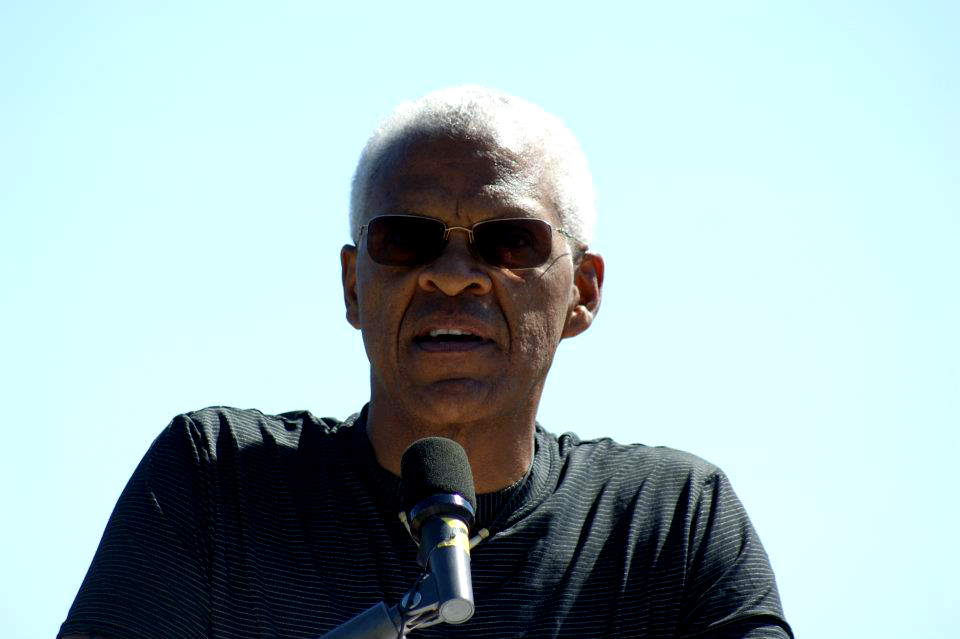
This quote summarizes the speech Jan (Jan Hutchins), CEO of SocialAgenda Media gave last week when asked to present to an audience that needed to hear it the most. Reinvention… That’s what makes us ever evolving humans… And Jan is a master of it, as you might know if you had a chance to enjoy his presence on television, witness his political career, take yoga classes from him or have him represent your brand in media.
I’ve consolidated some transcripts from the speech and wanted to share it with you in the hope that Jan’s words will inspire you, meet you where you are in life and get you focused on an even better tomorrow while settling you into the beauty of today. Please find it below and share your thoughts on the subject.
* * *
We’re all here because we haven’t died yet. Right? How do you feel about that? Still being alive, I mean.
Aging creates lots of feelings…
A reporter covering a person’s 100th birthday celebration asked, “What’s the best part of being 100?” The centenarian answered: “The almost complete absence of peer pressure!”
Or, the bawdy attitude expressed about aging in the title of a New Yorker piece about length of life span, The last Baby Boomer game is “Mine is Longer than Yours!”
Did you know the Baby Boomer generation (those born between 1946 and 1955) has the highest rate of suicide for any age group these days? That’s a pretty clear attitude about aging.
I’ve heard lots of people in their 80’s describe aging as “not for sissies.”
My attitude is that aging is about changing and requires as much, if not more, changing and learning than childhood because when we cease to change and learn we immediately start to die. The challenge is, we’re asked to do this while carrying all the conditioning from a lifetime of habits and memories and with a less malleable brain.
I’m here to talk about, and I hope, model, that it’s possible, even necessary, to embrace change at every age.
The topic is “Building your personal brand and becoming a thought leader in your field as a way to reach your retirement INCOME goals“.
Leave out the word retirement and this topic is relevant to everyone because we’re long past the days when you graduated high school or college, got a job, and stayed there until it was time to retire. Our modern world is all about change, and adapting to change.
My business, Social Agenda Media, is an alternative PR Agency designed to help individuals, professionals, authors, and other small and medium-sized business owners get guaranteed publicity, build their brand, establish thought leadership and reach their income goals.
Many of us in the baby boom generation are, despite the staggeringly serious statistics and all the dire predictions, determined to redefine aging (If you haven’t heard, 60 is the new 40. I recently turned 64 and look and feel better than ever!)
How about you?
How are you feeling these days?
Is it like you expected to feel at this age?
So, if government programs aren’t able to swallow the enormous needs of this python in a pig sized generation, if collectively we’re overleveraged and had what little we’d saved decimated by the world financial crisis, if the pensions we were counting on have disappeared, jobs we were depending on sent overseas, and we’re too old, and face too much competition for the few remaining corporate cubicles.
Many disciplined, well-intended boomers had their home equity destroyed when the housing bubble burst, their retirement 401k’s devastated by the stock market crash or their pensions pilfered by corrupt companies.
Some dire warnings estimate that at least one-third of our generation is financially unprepared for retirement.
What are we young-looking, optimistic, former hippies to do?
How about you?
Are you set for retirement or will you need to keep working?
It turns out many Boomers are actually happy to work longer, start businesses and join together in communities to help each other and set an example for others.
Perhaps boomers seem undaunted by the disappearance of retirement, as we knew it because we never wanted it in the first place. Remember, we noticed when our parent’s generation shifted suddenly from full-time work to full-time leisure how often they soon got sick and died.
Did you know that, Americans aged 55 to 64 are starting small businesses at a higher rate than any other age group? Two out of three adults in the United States plan to work into retirement, most of them making the choice for non-financial reasons. They don’t want to give up the stimulation and satisfaction they get from working.
It appears many Baby Boomers, in the midst of these circumstances, are needing to redefine themselves, their expectations and anything else that gets in the way of living long, full lives and giving their gifts to the world.
Forgive my language, but change is hell for many of us. It goes against our need to be right and be in control, so we make excuses and cling to old habits. We give into the urge to complain, criticize and blame others rather than face the hard work it takes to change. We’ve all been around seniors whose lives are one long complaint.
Part of the reason I’m excited to share my thoughts on this particular topic is because I’ve been living this subject. About a year ago I began another reinvention of myself. I’ve done it every ten years or so, only to discover this time that I would need to give up almost everything I knew and start all over.
The habit started when I was first out of Yale and asked a wise person how I might guarantee I live a full life. Go home they said and imagine you’re 95 looking back on your life, and decide from there, what you want to do, so you’re happy about it when you are 95. It’s still a good meditation.
This time though, faced with reinventing myself at 63, I eventually had to accept getting a “job” was almost impossible. It took surrendering through a pretty long depression before I could accept that despite a lifetime of accomplishments, I’m now too old, too qualified, or it’s always possible, too black to get hired for a “job”.
Some quick background: I’ve consciously changed careers many times. Right out of college I was a corporate whiz kid for AT&T, I escaped the corporate world to become a TV sportscaster, spent two years doing sports in Pittsburgh and then 9 in the Bay Area, moved into news anchoring in San Jose for ten years, then ran Community Development for the SF Giants to help change their image so they could get a favorable stadium vote. I left the Giants to seek my fortune during the wild 90’s, helping to start a robotics company and then a TV production company we took public intending to teach emotional intelligence to 5 year olds. As that was ending I was persuaded to run for public office, got elected to the Los Gatos town council for a four year term, which included a year as Mayor, then 11 years running a yoga business in Los Gatos becoming flexible, doing my inner work and sitting in wisdom circles.
This transformation was more painful than the others. I was forced to face all my bad habits, admit the truths I’d been hiding from, give up the stories I’d used to protect me from my fears, end all the drinking and distractions I’d used to avoid feeling the pain of aging and feeling sorry for myself.
I’m still working on the resistances, resentments and other stuff I talked about earlier that get in the way of making positive change… needing to be right, in control, using excuses to keep living in the past. Complaining, criticizing and blaming others for the way I feel. Even resisting help no matter how lovingly it’s offered.
So what have I learned about How to Build your personal brand, become a thought leader and reach your retirement INCOME goals?
What do I mean by Personal Brand, Thought Leader? Here’s the way I went about it. See if it helps you to define yours…
- 1. What’s special about you?
Decide what qualities or characteristics make you special or unique? Jeff Bezos, the guy at Amazon says your personal brand is what people say about you when you leave the room!
My brand was all about being a nice guy.
- Decide what you’d like people to say about you. What simple thing they can use to describe what you’re about? What are your values? Are you drawn to security, adventure, honesty? Are you cooperative or competitive?
I’m about health, innovation and communication, but I now realize my neurotic need to be liked and attempt to always be nice was robbing me of a real identity so I choose now to regularly risk losing rapport in situations and find I’m much better at selling, negotiating and actually caring about others.
- 3. What’s your expertise?
What do you know something about, have experience doing?
I understand transformation, fitness, and what makes a good story.
- 4. What’s your style?
If everyone is doing the same thing, how do you do it differently?
I’m enthusiastic, playful almost to the point of being silly, compassionate and curious.
- 5. What are your talents?
Music, dance, math, science, dexterity, singing, I’m good with words, connect with people, I’m athletic and have magical hands.
- 6. What’s your niche, how do you create exclusivity?
To have a distinctive brand requires not trying to appeal to everyone. To be really liked by the audience you’re trying to reach (the profitable one) will likely mean you won’t appeal to some others. Your yes means nothing if you can’t say no. And I repeat, you have to be able to risk losing rapport to be able to sell, negotiate, or love.
- 7. What’s your mission?
Based on those talents and with those values as your structure, decide what is your mission to accomplish? What is it that you want to create or become before you die so that you can die at peace? Some even say a mission should be so big you know you could never achieve it in your lifetime.
My mission is to evangelize ideas, principles and technology to transform businesses, markets and communities.
- 8. Tell your story
Once you have a brand, when you really know who you are and how you’re different than anyone else, you need to express your value whether you’re looking for a job, starting your own business or trying to get a date. Bravely and boldly be willing to tell people what makes you special and valuable. We’re now competing with everyone in the world and have to take charge of marketing ourselves if we’re to be seen and heard. If you build it and just let it sit there, they won’t necessarily come.
Thought leadership usually are those speaking or blogging viewpoints that are innovative or offer clarity in the midst of confusion, thereby presenting opportunities or solutions where none existed. Thought leaders frequently present contrarian views or radical interpretations of situations.
In what area are you a thought leader?
I believe:
- In staying fit and flexible
- In conscious breathing
- That our issues live in our tissues
- That problems, are opportunities in disguise
- In both/and rather than either/or
- That we are all part of one organism
- That we all see the object in the center of the circle a little differently
- That everything we do is either love or a cry for love
- That, as my friend Ray Arata’s book title suggests, It’s time to wake up, man (or woman) up and step up!
You don’t have to create the next Google, but you do have to get started if you want to reinvent yourself, live fully before you die, make enough to be comfortable and age gracefully.
So while you still can, just do it. Go for it. We’re fortunate to live in a culture (at least where I live in Silicon Valley) that has learned to respect failure, expect it and understand that the only way to learn, often is to fail. The regret you’ll feel on your deathbed if you never follow your dream, is much worse than the hard work, facing fears and overcoming setbacks required to succeed.
Frequently the work we do with our clients is about helping them to see they’ve unconsciously pushed away their real dream and substituted something more likely to succeed rather than risk doing what they really want. We show them how to incorporate their vision into what they’re doing and they wind up happier, more enthusiastic and effective.
(VISUALIZATION) Let’s do an experiment. Put both feet on the ground, land your full weight in your chair, pause at the beginning and end of the next few breaths, slow down your breathing a bit. Now choose, imagine yourself one year or five years from now. Where are you? What are you doing? How are you effecting the world around you, how do you inspire others? How have things changed in your own world? If the picture is not what you want, reimagine it but this time as you’d like it to be. Where are you? What are you doing? What’s changed?
Before we finish I’d like you to bless yourself by speaking out loud about the real dream still bottled up in you. Raise your hand and I’ll call on you.
I have lots of dreams, I want to have a fleet of busses ready to take poor kids to cool cultural places and pay their way in, any time they want to go. I want a vacation home in Bora Bora. I dream of passionately making love with my wife when I’m 120! I want to end the 270 unnecessary deaths that happen in our hospitals every day. I want a world without violence.
If you can’t or weren’t called on to say it out loud here, as soon as you can, say it to your friend or lover and ask for their help making it come true!
At the very least admit it to yourself that you have a dream
Then join me, join those who spoke and together step into being more fully alive,
We don’t have forever. Thank you!
Marketing through sports: Secret sauce of getting publicity with celebrity endorsement deals
4 Feb2013
by Jan Hutchins, CEO of SocialAgenda Media.
Every year the Super bowl attracts a bigger audience than any other watched event, more than 160 million people, fully half the nation will watch some part of the game so advertisers are willing to spend $3.5million dollars on a 30 second ad to reach that audience fascinated by athletes. This article will be timely and beneficial to those who wish they could afford a commercial during the game to associate their brand with sports legends.
Let me tell you how instead you can do it for under $10,000.
… I’ve been fortunate to be around great athletes my whole life. As a ten-year-old living in Ohio, several Cleveland Browns football players visited the home where I lived every Tuesday during the season for a barbecue. Sharing burgers with my heroes began a process of humanizing sports celebrities that I find valuable today in running SocialAgenda Media where we handle entertainment PR and sports marketing for consumer and enterprise brands, authors, technology and lifestyle businesses.
An opportunity – plug into existing local sports events at a fraction of the cost and use it as a story teaser to take your PR nationwide
Those who are interested in sports celebrity endorsement deals might benefit from participation in one of our new client’s upcoming events, the Multi-ethnic Sports Hall of Fame. Hundreds of VIP guests and renowned athletes will be gathering to honor the class of 2013.
Olga Kostrova, my creative and charismatic partner at SocialAgenda Media, and I will be hosting a broadcast on March 22nd, talk radio live from the Multi-ethnic Sports Hall of Fame induction ceremony at the famous Claremont Resort and Spa in Berkeley and there’s an opportunity within this event for you. In this article I will share with you how to get the best out of associating with a celebrity spokesperson, at a fraction of what it costs for something like the Superbowl, but first let me share some of my background.
You can get closer to celebrities by understanding them
Famous athletes are not my heroes anymore, they’re my friends, my clients and my partners.
Just a year out of college, I became a TV sportscaster and got to hang out with:
Pittsburgh Steelers at the beginning of the Bradshaw, Mean Joe Green, Franco Harris era;
Pittsburgh Pirates, including Roberto Clemente, Willie Stargell and Doc Ellis;
Got to interview Joe Louis and Billy Conn, together (!);
Spent a week at Muhammad Ali’s training camp, which included a then unknown sparring partner named Larry Holmes;
Pitt’s superstar running back Tony Dorsett and now NBA GM, Billy Knight.
I was then blessed during 20 plus years on TV and covering sports in the Bay Area to be close to the great Oakland A’s title teams, 49er dynasty squads, Warrior’s title winning wonder-dogs. I watched Bruce Jenner train to become the world’s greatest athlete and created a kid’s TV show with Joe Montana and Ronnie Lott.
I’ve spent nearly 40 years experiencing real friendships with professional athletes. That’s long enough that watching games are not all fun and games for me because the frequent injuries feel personal. I feel the injured player’s fear it might all be over, the alienation from being apart from the team and the painful rehabilitation that lasts long after they’re carted off, thumbs up and waving to the crowd.
I’ve looked into the eyes of Willie Mays and seen the hurt from being exploited by those he trusted blind him to the adulation. Seen the same distrust with being idolized in his godson Barry Bonds. I’ve seen huge, powerful athletes after a few years without “training” (read using steroids) walk into the room 100 pounds smaller. My buddies have recreationally drugged themselves out of lucrative careers or died much too soon from the punishment they put their bodies through. So watching games I can look past the spectacle being presented and see the cold, hard business it is.
What do you need to understand from this? Before considering doing business with athletes, take them off your mental pedestal, humanize them, have compassion for their very human struggle. See what you can offer to satisfy their basic human needs, not just the monetary needs of their agents.
Realize just how much pressure comes with having a job where every year there’s a world-wide tryout for someone to replace you, where you’re competing with people willing to do all the things people will do for millions of dollars, serious injury is just a play away and especially in football and boxing life after the game is likely to be short and painful.
Why marketing through sport celebrities can be such an effective vehicle for PR and branding?
Think about this. Who’s the person you’d be most excited to meet? Why?
Looking around for idolatry indicators I see sports jerseys everywhere, and although some guy named Levi dominates the pant space and lovers are always calling out the name God, if we’re asked, Muhammad, Christ, Buddha and Krishna top the list we give people. But Muhammad Ali, Cristiano Ronaldo, LeBron James and Tiger Woods top the list in our hearts. Few most admired lists would include boxer Floyd Mayweather, but the fact he earned 85 million dollars last year says something about his value in our capitalist world.
Other than the money, fame, physical prowess, and the fact they’re living the life we’ve dreamed of since we were seven, what is there about sports celebrities that vaults them above people who are actually making a meaningful, positive contribution to society? Why are they so effective as brand builders?
Every day there’s a celebrity golf tournament somewhere using athletes as the lure and selling memorabilia signed by them to raise funds for charities. There is no similar memorabilia market for Nobel Prize winners or soldiers just back from defending our freedom. As much as I appreciate the paramedic who saves my life, I don’t ask for her autograph and couldn’t sell it on E-Bay if I did. We appreciate the genius that creates technologies that reshape our reality but just think of them as rich geeks.
And don’t say it’s entertainers atop the wanna be list because, as cool as they are, when they really “make it” they want to own sports teams or buy front row seats to be up close and personal with the “real” celebrities. See Jay-Z, Jack Nicholson, Spike Lee, Justins Bieber and Timberlake.
I judge we’re dealing with a combination of the objective, undeniable, measureable, expression of excellence available in sport along with the power of television and its advertisers to create heroes and then rivet our attention on them. It’s a potent mix of actual physical greatness, flawed humanity and brilliant merchandising and the potential buyer you should beware. At the end of a sporting event the scoreboard defines the story, who won, who lost and by how much. Unlike other measureable areas of competition, like business for instance, the event is usually televised, and then replayed and discussed ad nauseum as if it’s actually important.
Why sign deals with athletes for product endorsements and how to get the best out of partnering with a celebrity
When we publicize our clients here at SocialAgenda Media, the articles we write about them and place in the media, tell their stories in ways that appeal to archetypal emotions and develop themes that touch all our lives and have mattered to people in cultures throughout time; love/hate, insecurity/safety, belonging/being alone, confusion/understanding, depression/creative energy, cooperation/competition.
Sport celebrities are ideal for businesses to use to project important aspects of their brand. Beyond just the association with success, they can represent overcoming challenges, good teamwork, innovation, humanness, prowess. We are embodied beings, relate to everything through our bodies and feel awe when we experience the amazing feats of speed, power, coordination and execution under pressure by great athletes. Awe is hard to experience in this modern, overanalyzed, fully explained, technical, often cynical world we live in today. Sports celebrities add that awe to your brand.
But, along with all the benefits brought by sports celebrities come all the issues that attach to all relationship with human beings, for as awesome as sports celebrities can be, they often fall prey to the temptations that come with being young (brains don’t fully form until age 25), rich and pampered and can take your brand down with them. Tiger Woods ruins his immaculate image because he can’t keep his ego in his pants. Don’t just do it! Barry Bonds, Lance Armstrong and so many others are driven to cheat their way to the top. Having your spokesperson revealed as regularly drinking, drugging, having wild sex and partying late into the night will give your brand a hangover.
An opportunity – consider athletes’ career lifecycle, i.e., approach those who are approachable
Now back to the radio broadcast and Hall of Fame induction ceremony. Present there will be many examples of my key insight and offer to those considering using sports celebrities in marketing. Two words, retired athletes.
Free from the need to please the team’s ownership they can speak more honestly and colorfully. Old enough to have had their brains fully form and with the perspective of being “done” at 35 they’re more respectful of and empathetic toward others. Like many memories their exploits age well and the beyond their prime appearance makes them more accessible to audiences.
Whether you market a technology solution or business service to executives, launching a lifestyle relevant training program to teens, or promote a consumer product for baby boomers, retired athletes who carry success stories can add a strong voice to your brand. Have them deliver your message, and let SocialAgenda Media team spread it across the media universe. We will help you to make a deal and publicize it via major media outlets. We guarantee comprehensive media coverage.
Get in touch. Give what turned out to a lights out Super Bowl a break. Let’s explore the opportunity you actually can afford.
“Jan and I go back more than 40 years and have developed real trust. I don’t believe there is anybody better at helping organizations understand how to publicize their business when engaging sports and entertainment celebrities than the PR team led by Jan and his partner Olga Kostrova.”, said Arif Khatib, founder of the Multi-Ethnic Sports Hall of Fame. ” Jan brings 40 years of experience as a journalist, covering sought-after athletes. He understands their needs and preferences. Olga adds strategic vision and creative spark to the process. Together they create relationships with their clients that are deeply satisfying and highly effective”.
Partner with SocialAgenda Media. Our advantage is the disruptive process that supports our philosophy. We develop stories and write well researched articles that are consequential, remarkable, and memorable. We get them placed in major media outlets, as well as on corporate portals, blogs, in newsletters. Content from all channels is propagated on social platforms to trigger social signals that improve search engine ranking and build your thought leadership position.
It’s PR + Content Development + SEO + Social Media Marketing + Thought Leadership Marketing…
by Jan Hutchins, CEO of SocialAgenda Media.
My buddy Rich Lieberman runs a show on KSCO radio in Santa Cruz 1080am, and interviews media celebrities. If you are a media personality you might want to get in touch with him and see if you can appear on his show.
Yesterday he invited me to be a guest. So, tune in to listen. I’ll be on with him from 3:30 to 4pm today. Here’s the link to listen in from anywhere.
Rich is a self-proclaimed Gadfly who regularly breaks SF media news in a three-hour daily LIVE, inter-active radio talk show that is centered on media and personalities, pop culture, music, sports, and other events of interest… hosted by Rich Lieberman, media gadfly.
When I asked Rich what we’ll talk about, he showed his grace (and age) by saying he just wanted his audience to know what’s happening these days for one of the Bay Area’s most popular journalists and a man who treated him kindly back when I was “somebody” and he wasn’t yet!
Enjoy!
Try this new media relations process to obtain guaranteed press coverage without a PR agency
8 Jan2013
Today the mighty pen needs a sword. Disaster always sets the stage for opportunity, fresh growth, new perspective. The demise of paper-based journalism threatens to put down our watchdog, weaken the forces that traditionally comfort the afflicted and afflict the comfortable, eliminate the institutions in our society which enforce civic accountability through their ability to expose and hold other institutions accountable. How can we create an economic model that supports investigative and accountability journalism? I say we start with beauty and work our way to truth.
One of effectiveness “guru” gems is his recommendation that communication works best if one seeks to clearly understand the “other” before seeking to communicate one’s ideas or information to the “other.” People like to feel heard and understood before being comfortable giving their full attention and trust to someone. It’s at the core of all marketing. Since words have meaning, or at least are intended to, let’s consider what prospect engagement seems to mean today as opposed to what at least Covey and this theory say it really means.
A Broadcast Sequel – This Time It’s Personal
8 Jan2013
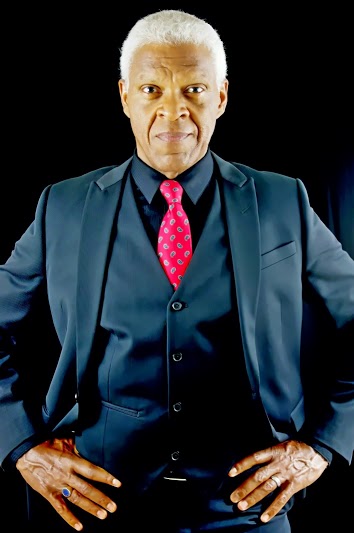 Because I used to be “somebody” people are always asking me what I think of the media. This is a blog about media, new and traditional, and I carry a bias against the way dependence on ratings affect the media today. The parallel debate in the new media industry is do we create content for the visitor or the search engines? My bias against creating solely for the search engines seems appropriate to explain as we start getting to know one another.
Because I used to be “somebody” people are always asking me what I think of the media. This is a blog about media, new and traditional, and I carry a bias against the way dependence on ratings affect the media today. The parallel debate in the new media industry is do we create content for the visitor or the search engines? My bias against creating solely for the search engines seems appropriate to explain as we start getting to know one another.
My family is my world…
8 Jan2013
I’m married to an actual angel and have two healthy, happy adult children. My wife, Olga Kostrova, is wise, beautiful, gifted, creative, fiery, tenacious and incredibly loving. We experienced love at first (actually third) sight and were married just seven weeks after meeting. We’ve vowed to birth from our marriage an evolutionary jump, a quantum leap in the manifested world by being intensely alive, totally present and committed to productivity.

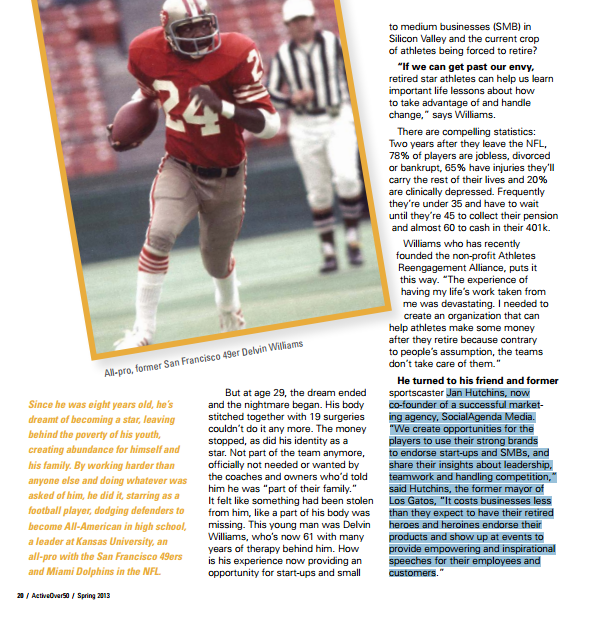
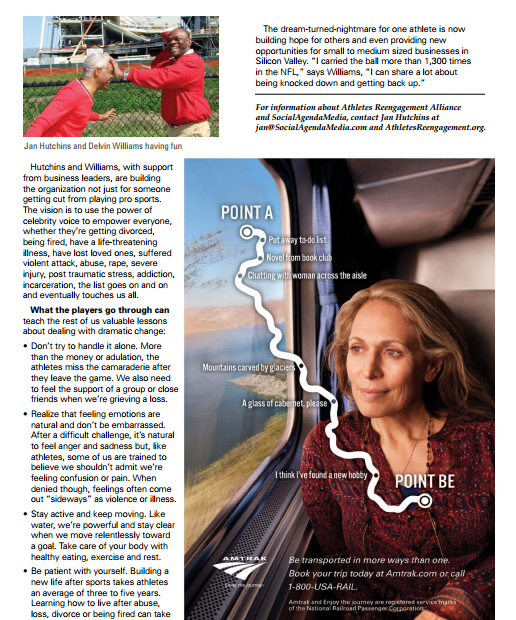
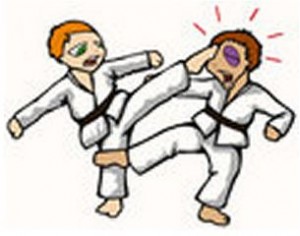
 Have you ever gotten your pants down and got whipped for being a trouble? Well, let’s put it this way, this concept is not foreign to those from Eastern countries – children get their dose for misbehaving. So, it will not hurt you to take pants off the reporter that just poured his judgment and ignorance all over you in public. Now, you get him naked in public. No, I don’t mean you should use your sophisticated vocabulary and call him names. As much as this is considered to be one of the common defense tactics, I personally don’t recommend it. Stay in your integrity. Just reveal what you see to be really happening, what is really underneath of the criticism.
Have you ever gotten your pants down and got whipped for being a trouble? Well, let’s put it this way, this concept is not foreign to those from Eastern countries – children get their dose for misbehaving. So, it will not hurt you to take pants off the reporter that just poured his judgment and ignorance all over you in public. Now, you get him naked in public. No, I don’t mean you should use your sophisticated vocabulary and call him names. As much as this is considered to be one of the common defense tactics, I personally don’t recommend it. Stay in your integrity. Just reveal what you see to be really happening, what is really underneath of the criticism.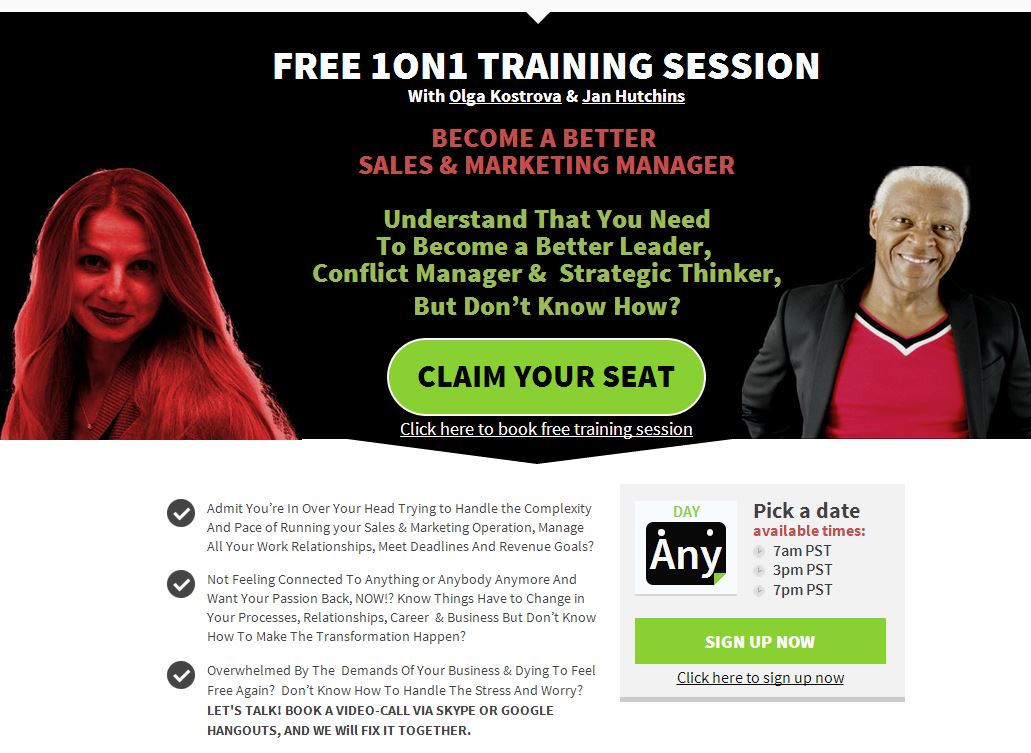
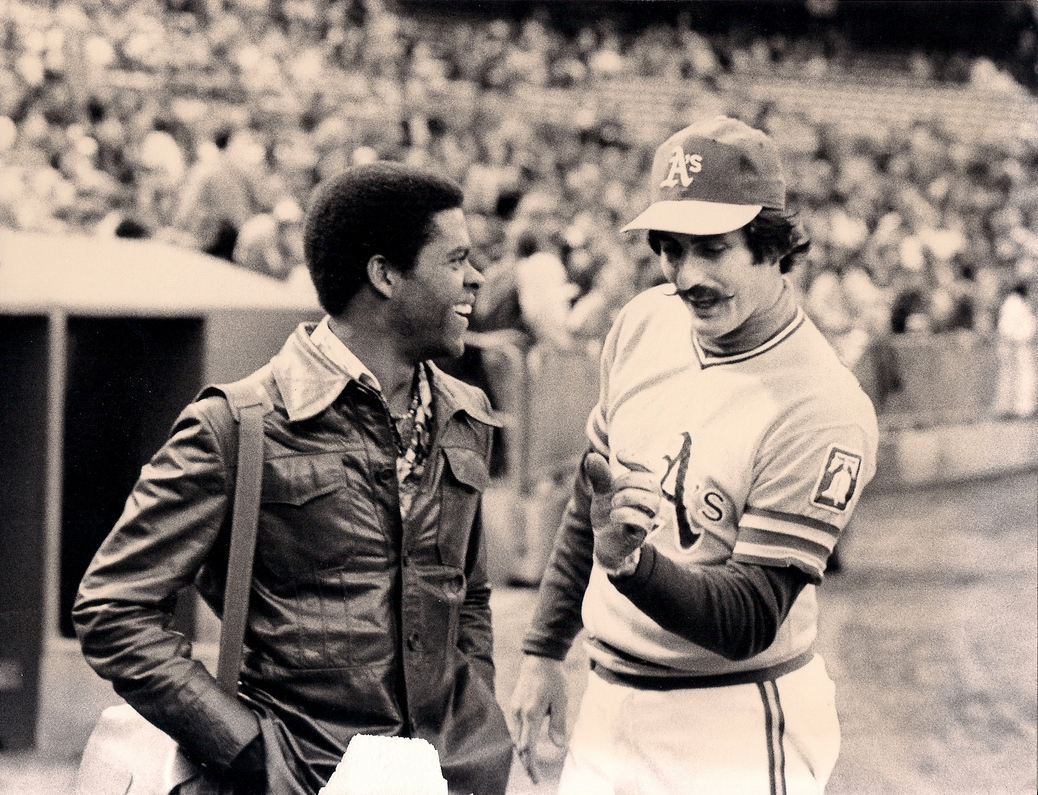
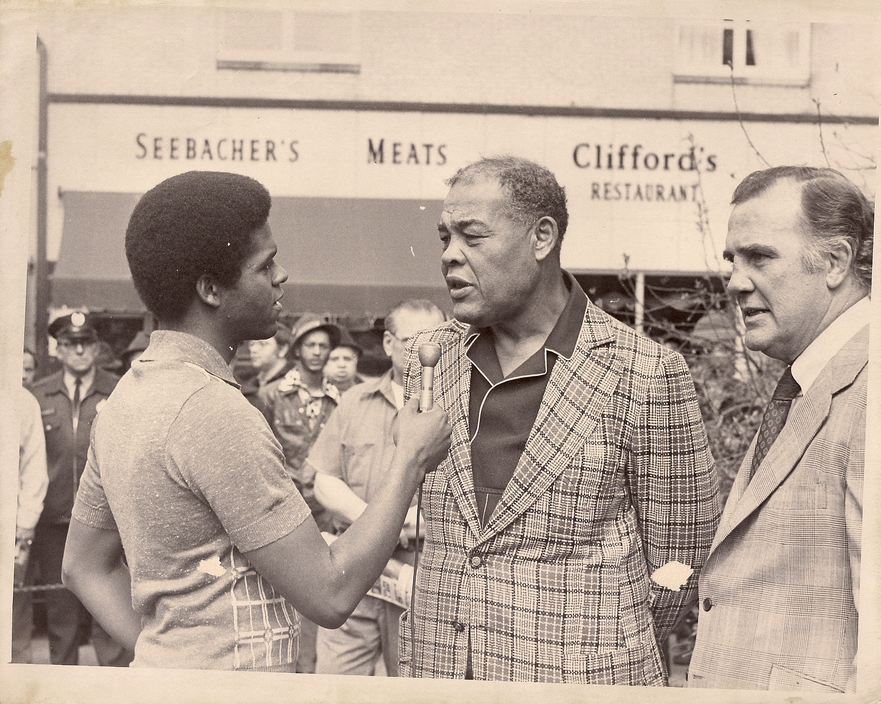
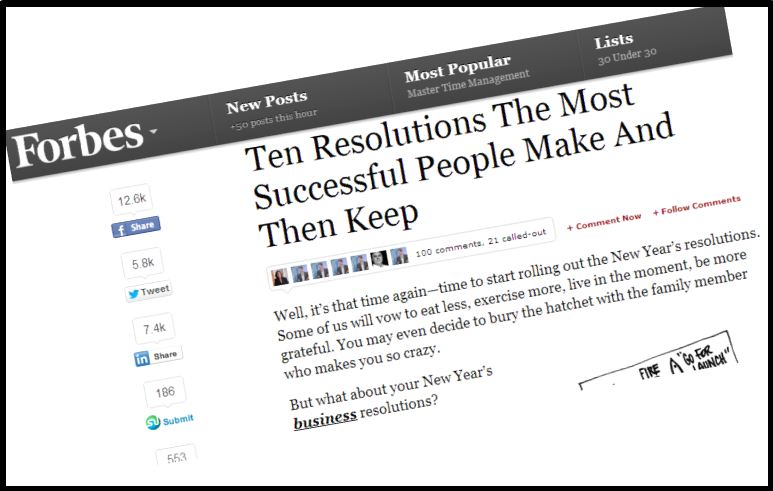
Connect with us: